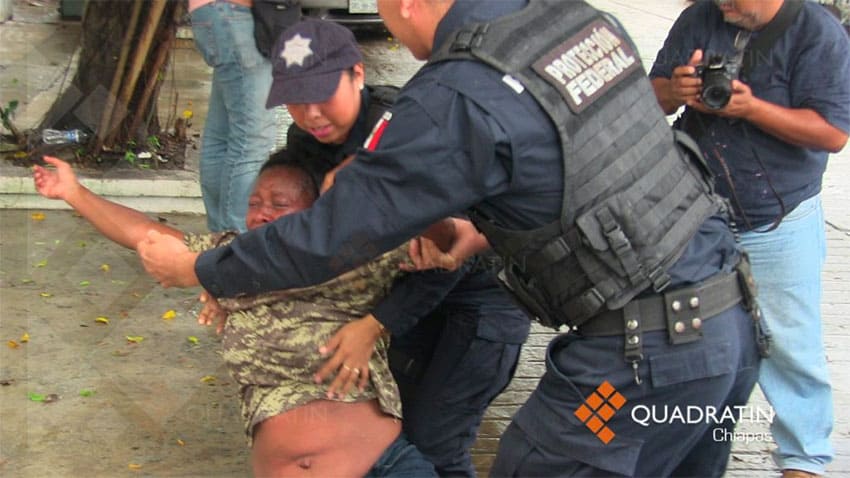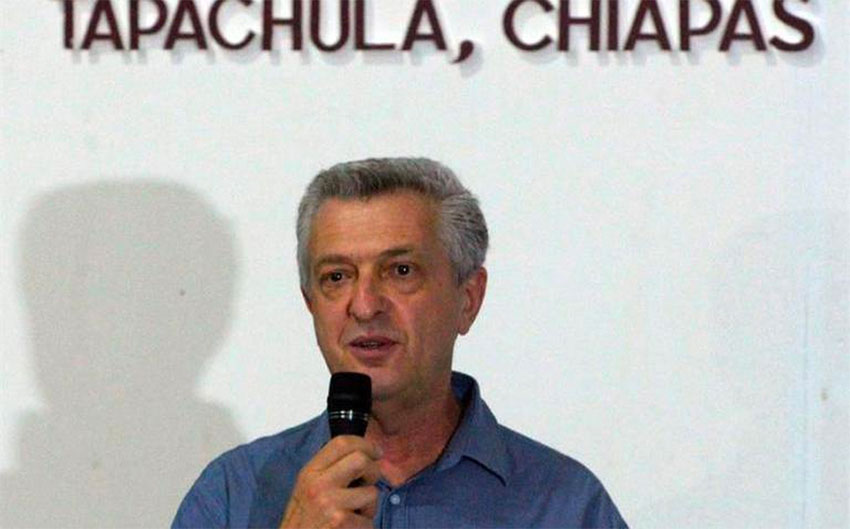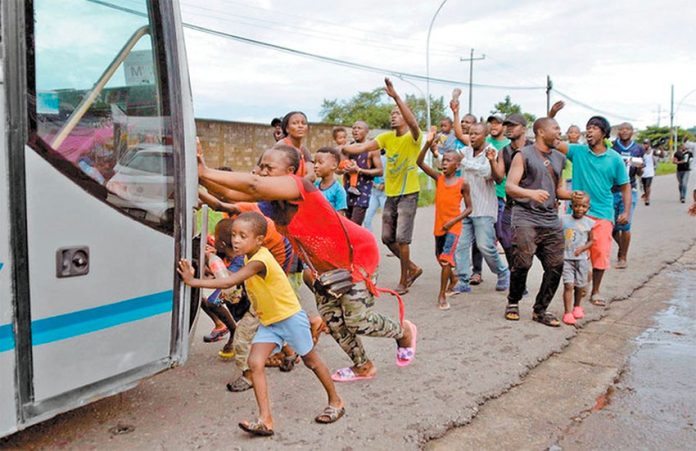As United Nations High Commissioner for Refugees Filippo Grandi opened a new registration center for asylum seekers in Tapachula, Chiapas, on Saturday, African migrants renewed their protest to demand transit visas that would allow them to travel to the northern border.
The migrants also tried to storm the new facility but were prevented from entering by Federal Police, the newspaper Milenio reported.
When Grandi and other UN Refugee Agency officials left the building, the protesters — with children placed in front — surrounded their vehicles and tried to prevent their departure. A Congolese woman even grabbed onto the front tire of one of the vehicles in a desperate attempt to be given the opportunity to plead her case to the UN officials.
But Grandi boarded the vehicle without speaking with the protesters.
The migrants, many of whom have been stranded in Tapachula for months, are demanding transit visas in order to travel legally to the northern border to seek asylum in the United States.

Luis García Villagrán, head of a local human rights center, said that Mexican law stipulates that migrants have the right to travel through and leave the country.
However, the National Immigration Institute (INM) has insisted that their departure be via the southern rather than the northern border and in recent months it has only issued visas that allow the migrants to stay in Chiapas.
Citizens of countries including Ethiopia, Mali, Cameroon, Somalia, Congo, Mauritania, Guinea and Haiti have protested in Tapachula on several occasions and in early September they damaged a service module that had been set up to review their cases.
Migrants clashed with security forces during one protest in August, while a group of African migrants rioted in June at a temporary shelter in the southern city to demand food, better conditions and visas.
At Saturday’s inauguration of the registration center, Grandi acknowledged that there is room for improvement in responding to migrants’ claims for asylum and transit visas.
“Chiapas receives the highest number of asylum applications of any state in Mexico. We have to work together to respond [to them] efficiently, quickly and fairly, respecting the rights of those who have to flee,” he said.

The high commissioner said the new center – a converted coffee warehouse located in south Tapachula that will be managed by the Mexican Commission for Refugee Assistance (Comar) – will play an important role in ensuring that happens, stating that it will enable asylum applications to be dealt with “promptly and fairly.”
However, at a news conference, Grandi also called for more resources for Comar, which has been overwhelmed with asylum applications this year.
“Comar needs more resources and room to work because the challenge is increasing,” he said. “There has been an important increase [in migrant arrivals] but this does not equate with the resources that Comar has . . .”
Meanwhile, federal authorities said on Saturday that they had arrested two suspected leaders of a human smuggling ring that earned up to US $40,000 a week by bringing migrants into the country illegally via the Mexico City and Cancún airports.
“According to intelligence information, the alleged culprits led a criminal group that received on average 25 foreigners per week, mainly Ecuadorians and Peruvians as well as undocumented persons of Indian origin,” the Secretariat of Security and Citizens Protection (SSPC) said in a statement.
The SSPC said the migrants were transferred to properties in Mexico City and México state where they stayed for one or two days before being put on buses to Mexicali, Baja California.
The arrests of the two suspected ringleaders followed a tip-off from a citizen, the secretariat said, adding that each foreigner brought into the country illegally paid between US $1,500 and $2,500 for the criminal organization’s services.
Source: Milenio (sp)
